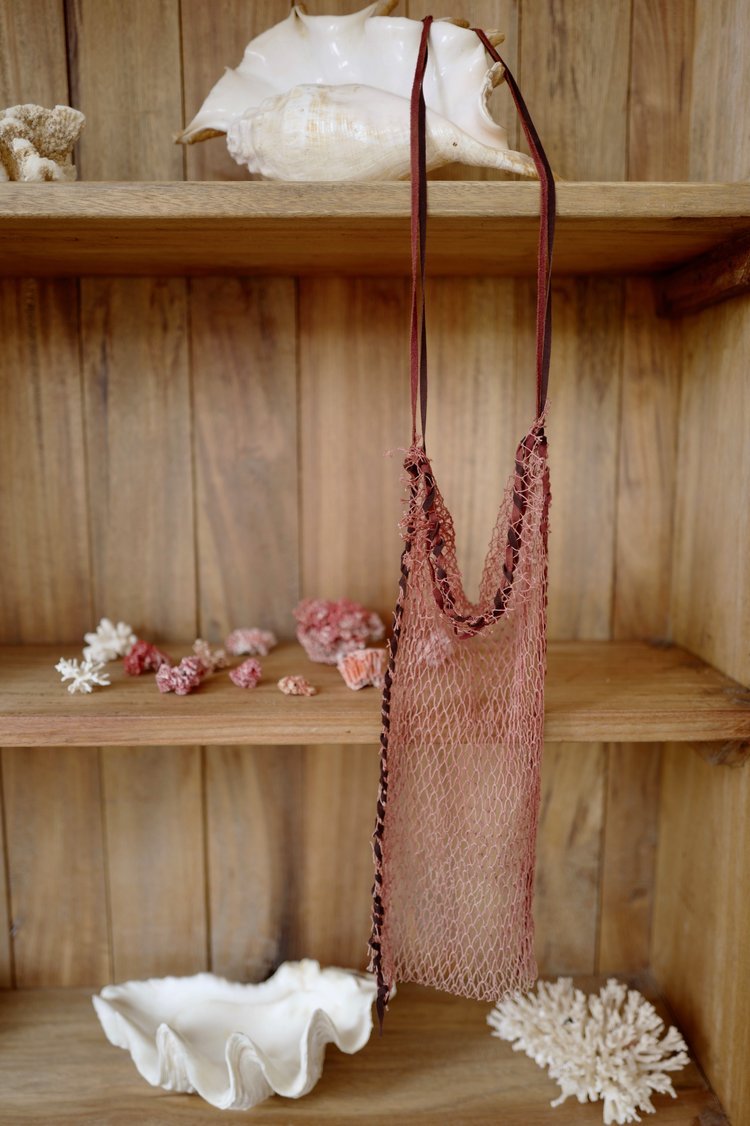A conversation with Clementina Calleri
Our creative explorations often lead us down inspiring paths, and when a chance encounter drew us to the dreamy pages of The Palmist, we were mesmerised. Mesmerised by the eclectic collection of artisanal lifestyle wares that embrace everything from fronds-turned-lampshades from the Yucatán Peninsula, to antique Japanese banners hand-embroidered with vintage silk threads. Mesmerised by graceful products created with repurposed materials and sold for charity, all infused with the founder’s intention to spread positive vibes in living spaces across the world.
Clementina Calleri is the creator of the magical world that is The Palmist. With Italian roots and a life journey that have led her across far flung corners of the world - from Northern Kenya to Valladolid via London - she has now settled in her home country of Italy for the very first time in her life, and opened her creative studio in Milano.
© Gentl Hyers
Clementina’s story is a fascinating one. It embraces a love for all that is artisanal and deeply rooted in ancient crafts that reflect a country’s region and traditions, while purveying a considered aesthetic. With a background in photojournalism, Clementina transposes her experiences that count Coqui Coqui Oficios Artesanos, a niche French fragrance brand, and work that supports children’s education within a tiny village in Kenya, all while encapsulating a rare mix of form, substance, spirituality, and heart.
We caught up with Clementina and delved further into her mystical creative world, asking 10 questions inspired by the Proust Questionnaire - a questionnaire that has its origins in a parlour game that had been popularised by French essayist Marcel Proust, designed to reveal the player’s true nature.
Clementina Calleri
© Gentl Hyers
What is your idea of perfect happiness?
A moment without fear / time spent with artisans in the bush making baskets / having my family reunited / slow travelling.
What is your current state of mind?
Express my creativity in every possible way. Channel the thousands of ideas that come to my mind and transform the best of those into projects and collaborations.
If you were to die and come back as a person or a thing, who or what would she/he/ it be and why?
Hard one. There are so many things and people that I dream to be. If I were to come back as a person, I would love to be a craftswoman in the Japanese mountains - it is such a distant culture from what I have experienced up until now, it would feel like a real discovery to me. If I were to come back as a thing, then I would love to be a giant Magnolia tree.
If you could change one thing about yourself, what would it be?
Definitely my stubbornness. They say Aries are really hard to convince!
What is your greatest regret?
Taking so much time to understand that my body can’t carry the weight of the world.
What is your most treasured possession?
Great one. I have two: a pair of antique Japanese Zōri, the traditional sandals made of straw, found in a tiny market in Greece. And the second one, a Brazilian traditional woven Xavante Baquités bag which I bring everywhere with me.
What is the quality you most like in a man?
Patience.
What is the quality you most like in a woman?
Generosity.
Samburu children in Manyatta, Kenya.
What do you consider your greatest achievement?
Founding The Palmist Club has enabled me to free my creative spirit and to support children’s education in Wamba, Northern Kenya where my family and I built a community school for disadvantaged children aged 2 to 7 in memory of my brother, Seba.
What is your motto?
Sorridi sempre - Keep smiling. People will help you; it is the teaching I have always received from my father.







